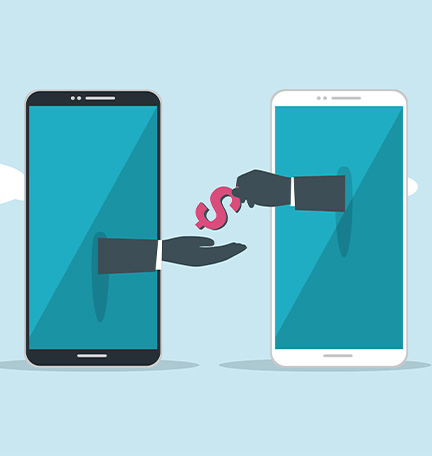Easy Money Management With or Without a Checking Account
Everyone has a unique financial situation — one that may require additional banking solutions to meet specific needs. Fortunately, many banks offer more money management options than just checking and savings accounts.
Not everyone needs a traditional checking account. In fact, many qualified banking customers choose not to have checking accounts, according to Jody Wigley, Head of Now Banking at Regions Bank. “It’s not because they’re locked out by the financial institution or don’t understand how a checking account works,” he says. “They just want other options.”
If you’re looking for a checking account alternative, consider these tools to help you manage your money.
Cash
If you use cash frequently, you’ll want to be mindful of budgeting, spending, and saving. “Cash is not insured, so if you lose it, it’s gone,” Wigley says. “And since there’s no electronic record, you have to be more disciplined about keeping track of it yourself.”
If you need to pay bills with cash, you can visit the biller’s payment center, such as your local power company’s payment center for your electricity bill. You can also visit a participating Western Union® agent location to send cash to thousands of business to pay your bill for things like credit card, car, utilities, and mortgage for a small fee.
Check-Cashing Services
If you have a check to cash but don’t have a checking account, you may need to rely on check cashing services, where you could incur a fee of 1 to 6 percent, or possibly more. If you don’t have a checking account, then the next question is what to do with your cash.
Reloadable Prepaid Cards
Consider a reloadable prepaid card if you don’t have a checking account. Prepaid cards can be useful for managing your money if you have a variable income, and many do not charge overdraft fees. They also may offer fraud protection and transaction monitoring to protect your money from suspicious activity.
Money Orders
If prepaid cards aren’t for you, a money order may be a good option. You can use a money order to make payments, pay bills, or send money to friends or family. Money orders can be purchased several places like a bank, a post office, or some retail stores. Most of them accept cash, prepaid cards, and debit cards, and some accept credit cards. While money orders come with a small fee, they allow you to track the payment to ensure it gets delivered to the correct recipient.
Learn more about how to manage your money with or without a bank account through Regions Now Banking.






